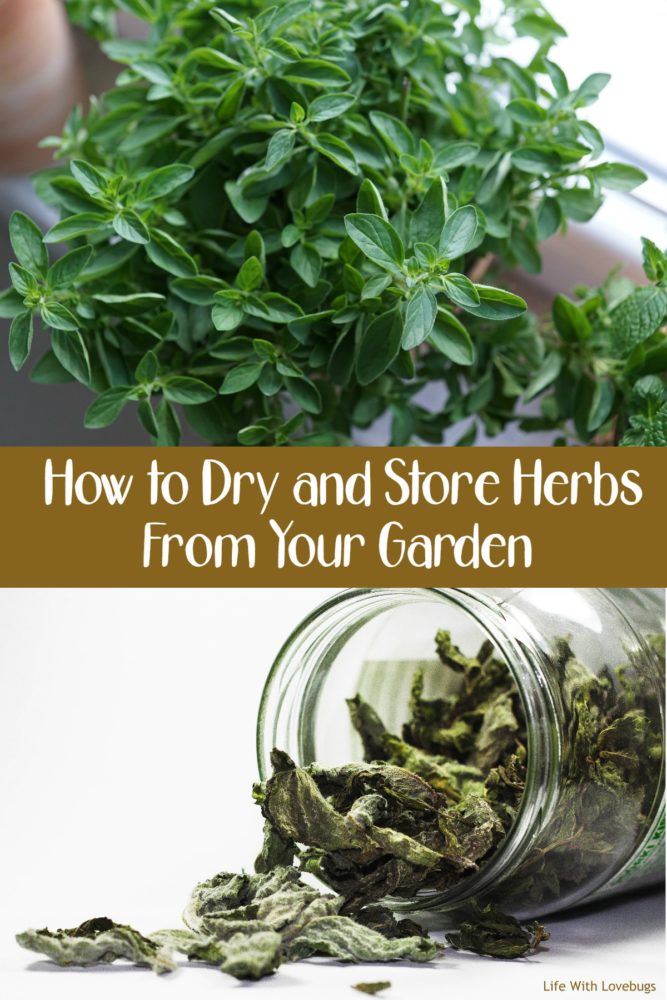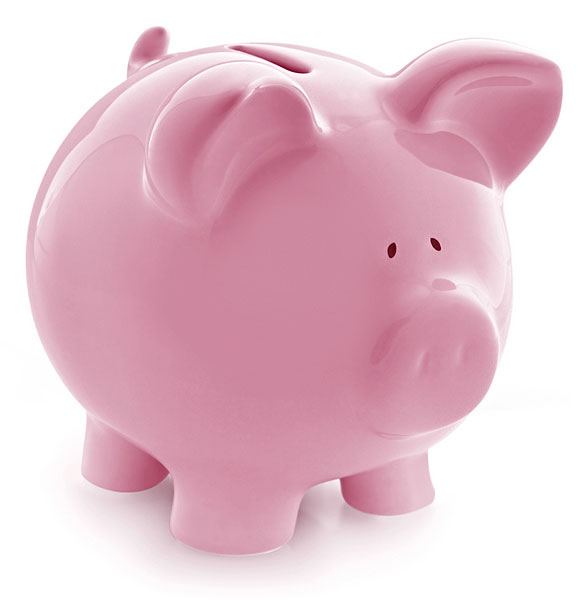How to Dry and Store Herbs

A few weeks ago I shared some tips for starting an herb garden. Once your garden is growing, you will need to harvest and store your herbs. It helps to dry them first to help the herbs last as long as possible. Dried herbs usually last about one year, if stored properly. Here are some basic instructions to get you started!
Harvesting and Preparing Herbs
Before you get started with drying your herbs to preserve them, you need to prepare them a little bit. You don’t just cut herbs, then put them directly in the oven or hang them to dry. First, make sure they are being harvested at the appropriate time. For the best flavor, you should harvest herbs before they flower. Cut branches mid-morning after the morning dew has dried from the leaves, but before the plants are wilting in the afternoon sun. As you would with flowers, do not cut all of the herbs off the entire plant. Simply cut back no more than two-thirds of a plant’s herbs at one time. Cut pieces with a long enough stem to bundle for drying and remove any damaged leaves. Any loose leaves/herbs that you remove from the stems which are in good condition can be used immediately for cooking or placed in your drying bag.
Air Drying Herbs
Air drying is not only the easiest and most popular option for preserving herbs but it is also the best way to retain the oils and flavor of the herbs. Air drying works best with herbs that do not have a high moisture content, such as Bay, Dill, Marjoram, Oregano, Rosemary, Summer Savory, and Thyme. To air dry your herbs, bundle about 5 or so stems together and secure them with a rubber band or bakers twine. Keep in mind that smaller bundles are going to dry a little faster. Next, take your herbs and put them in a paper bag, with the stem side up. Close the bag and tie it off, poking some holes in the bag carefully. Hang it in a room with lots of rooms for proper ventilation. This shouldn’t take longer than a week. Labeling the bags with the name of the herbs and the date you harvested them will help keep you organized with what herbs you have and when you should take them down.
Oven Drying Herbs
Another popular way to dry your herbs is by using the oven. This is going to take a lot less time. If you want to get your dried herbs into containers by tomorrow, using the oven is the ideal method to try out. Start by turning on your oven to 180 degrees Fahrenheit. Let it preheat while you prepare your herbs to be dried. Once it is preheated, you can put the herbs on a pan and then bake for up to 4 hours, but at least 2 hours. This method does cook the herbs which will result in the removal of some of the oil content and a bit of the flavor, so keep that in mind when you decide to bake them. Unless you need the dried herbs right away, I would use this method as a last resort.
Storing Dried Herbs
Once your herbs are dried, they should be stored in airtight containers. Small canning or upcycled glass jars work great, as well as zippered plastic bags. Be sure to label and date your containers and store them in a cool, dry place away from direct sunlight. The herbs will retain more flavor if you store the leaves whole and crush them when you are ready to use them. If your herbs show signs of even the slightest bit of mold, discard them because it will only spread. Dried herbs are best used within one year. If you notice they are losing their color they are probably losing their
The links below are affiliate links. For more information, please view our Disclosure page.



